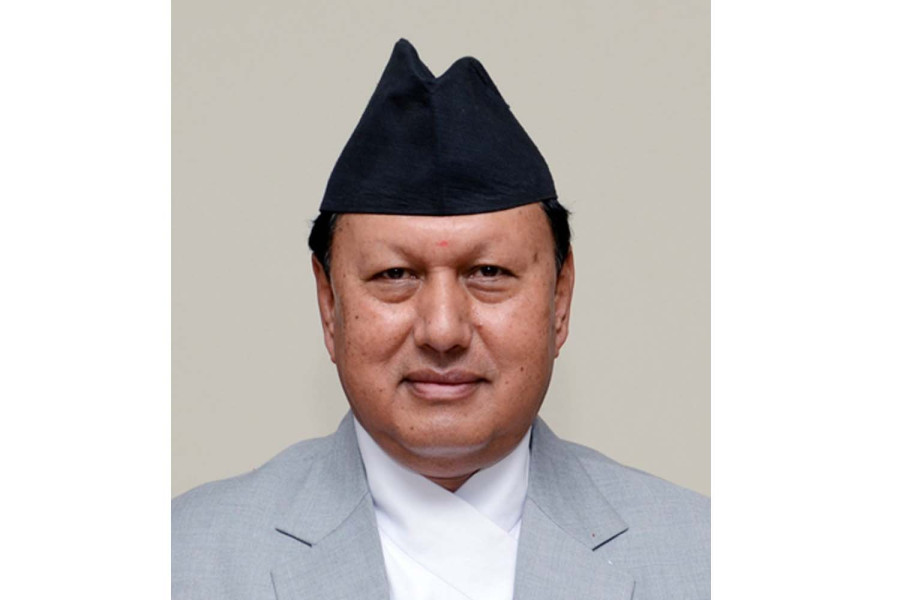National
CIAA chargesheets ex-minister, officials in Teramocs scam
Anti-graft body seeks Rs3.21 billion in damages and long jail terms for Mohan Basnet and top NTA officials.
Binod Ghimire
After over a year of investigation, the Commission for the Investigation of Abuse of Authority (CIAA) on Thursday filed a corruption case at the Special Court against 16 individuals including former minister and member of the House of Representatives Mohan Bahadur Basnet and two companies, seeking Rs3.21 billion in damages in connection with the procurement of the Telecommunications Traffic Monitoring and Fraud Control System (Teramocs) for the Nepal Telecommunications Authority.
Then chairpersons of the Nepal Telecommunications Authority (NTA) Digambar Jha and Purushottam Khanal; then members Dhanaraj Gyawali, who also is a former government secretary, and Tika Prasad Upreti have also been named as accused in the charge sheet.
Similarly, NTA directors Bijay Kumar Ray, Surendralal Hada and Dipesh Acharya; then deputy directors Rewati Ram Pantha, Suresh Basnet, Harinya Prasad Bastakoti, Achyutananda Mishra and Sanjeev Adhikari, have also been charged for their alleged involvement in the scam.
The constitutional anti-graft also lodged corruption charges against consulting firm Vannerise Solutions (SAL Offshore) and its CEO Jamal Anouti, as well as its local agent Connection Trade Link Pvt Ltd, along with chairman Dilip Kumar Gurung and Director Tej Prasad Kharel.
Filing a chargesheet, the CIAA has said while selecting a consultant for the procurement of Teramocs, the NTA committed irregularities by preparing a false report regarding an unqualified bidder and allowing participation in the Request for Proposal (RFP) process, ultimately selecting the said bidder.
It has also said the telecommunications regulatory body didn’t abide by a Supreme Court order. Responding to a writ petition, the top court had directed to have a law in place before introducing the system that gives access to citizens’ private data.
The CIAA investigation has found that Basnet, breaching his jurisdiction, issued unilateral directives to include the Teramocs system—which was not proposed by the NTA in its annual programme for fiscal year 2017-18.
“This act contravened clause 34(C) of the Telecommunications Regulations and infringed upon the autonomy of the NTA established by the Telecommunications Act 1997 thereby setting a precedent for institutional damage,” reads the charge sheet portraying Basnet as the main accused in the mega-corruption case.
The Teramocs procurement process started during Basnet’s tenure and was executed when Gyanendra Bahadur Karki was the minister for communications and information technology. It did not stop when Gokul Banskota, who succeeded Basnet, was the minister.
Karki and Banskota, however, were not chargesheeted though the CIAA had investigated both of them. “It is not necessary that everyone who was investigated was part of the irregularities,” Rajendra Kumar Poudel, spokesperson at the CIAA, told the Post explaining why they were not chargesheeted.
With the registration of the corruption case, Nepali Congress leader Basnet has automatically been suspended as a member of the lower house. In addition to demanding Rs3.21 billion in damages from the accused, the commission has sought imprisonment as per section 15 and 24 of the Corruption Prevention Act which could range to a maximum of 17 years jail term.
Section 14 of the Act envisions 10 to 14 years of imprisonment for anyone convicted of corruption amounting more than Rs100 million. Similarly, section 24 has a provision of additional three years of imprisonment.
Despite established procedures under Section 45 of the Telecommunications Act and Rule 14 of the NTA Financial Administration Rules, Basnet initiated the project without any feasibility study, budget estimate, legal or policy provisions, consultation, or clarity on funding source or implementation framework, the commission has concluded.
Neither were preparatory steps taken for the procurement nor were cost estimates prepared as required under Section 5 of the Public Procurement Act, according to the charge-sheet. It further says that no master plan for procurement was prepared, violating the procurement laws and a single RFP was used for both goods and consulting services, in violation of the required separate procedures.
“The purchase process bypassed the mandatory e-procurement system and the Letters of Intent were evaluated in bad faith,” reads one of the points of the charge-sheet. “ Proposals were accepted beyond their validity period, and only Vanrise Solution was consulted for extension, violating procurement rules.”
The commission has found that the final agreement with Vanrise Solution was signed on 7 February 2022, long past the allowed 15-day period post-notification of Award.
Hardware items were procured and paid for without a clear bill of quantity or price schedule in either the financial proposal or the contract.
“Although the main tasks in the lump-sum consulting contract were design, development, and software installation, Vanrise only delivered hardware, receiving a payment of Rs 1.11 billion, and the system is yet to be fully implemented due to a lack of required policy framework,” the charge-sheet further reads.
The commission has demanded an equal recovery amount and imprisonment for Basnet, Jha and Khanal. However, Gyawali and Upreti, if convicted, will have to pay a damage amount of Rs 3.21 billion with maximum of 14 of imprisonment.
While the recovery amount is the same for all others involved, their imprisonment period varies depending on the nature of corruption they were involved in.




 8.67°C Kathmandu
8.67°C Kathmandu















